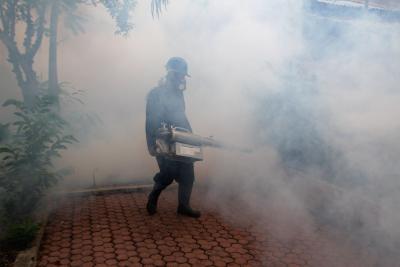New York, Aug 29 : Researchers have found that the zika virus infection can enhance the risk of severe dengue disease.
The study, published in the journal Science, has important implications for the development, efficacy and safety of zika vaccines. Furthermore, the insights gained may provide a framework for understanding the interactions between other immunologically complex viruses, including coronaviruses.
For nearly the past two decades, subsequent epidemics of dengue (DENV) and zika virus (ZIKV) – two closely related, mosquito-borne flaviviruses – have wracked the global tropics, infecting hundreds of millions of people annually.
“Our finding is about flaviviruses and specifically dengue and zika viruses and dengue disease,” said study co-author Eva Harris from the University of California, Berkeley in the US.
So for, little is known about how immunity through Zika infection or vaccination affects subsequent dengue disease.
The research team estimated the probability of symptomatic dengue virus serotype 2 (DENV2) during the 2019 to 2020 epidemic based on the zika virus and dengue infection histories. They analyzed pediatric cohorts in Nicaragua that experienced sequential dengue virus 1 (DENV1), DENV2 and dengue virus 3 (DENV3) epidemics from 2004 to 2015, zika epidemics from 2016 to 2017 and DENV2 epidemics from 2018 to 2020.
In the study, the researchers found that the risk for symptomatic DENV2 and severe disease was increased by the presence of one prior zika infection, one prior dengue infection, followed by one zika infection. However, multiple prior dengue infections reduced dengue risk.
“The most important thing that we want to do in the future is to maintain this cohort so that we can look not only at the effect on DENV2 because we happen to have a DENV2 epidemic, but the other serotypes,” Harris said.
“An additional lesson from our study is that natural ZIKV infection can have long-term negative consequences,” she said.
Thus, ZIKV vaccines are being engineered to induce a better response as compared to natural ZIKV infection by only inducing potently neutralizing anti-ZIKV antibodies and avoiding inducing enhancing antibodies.
Disclaimer: This story is auto-generated from IANS service.

